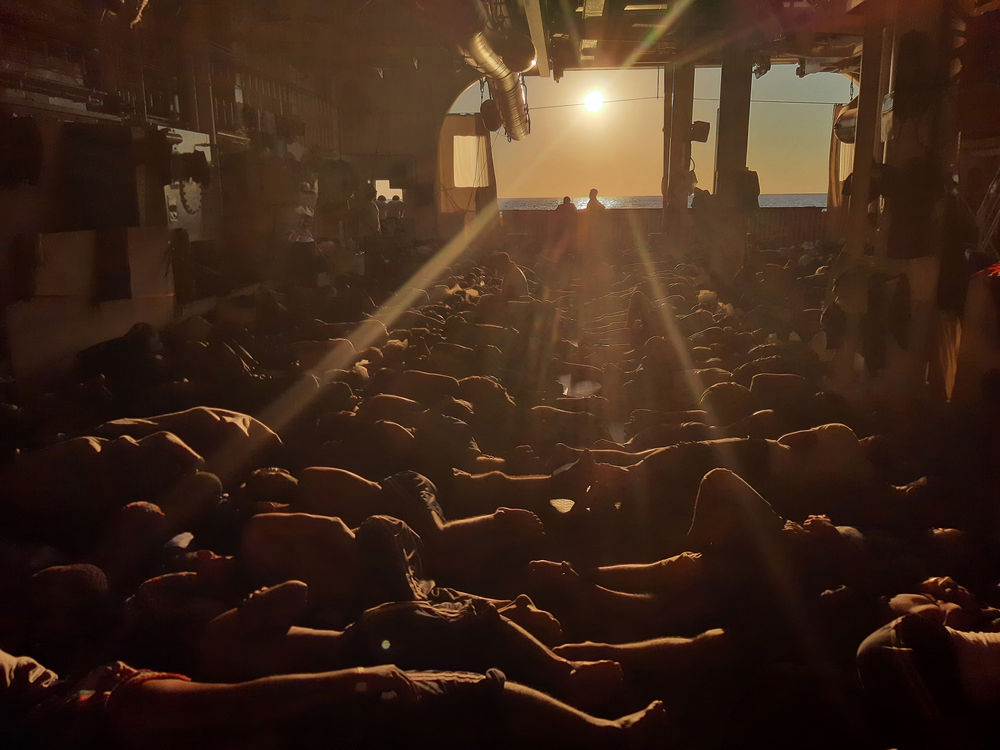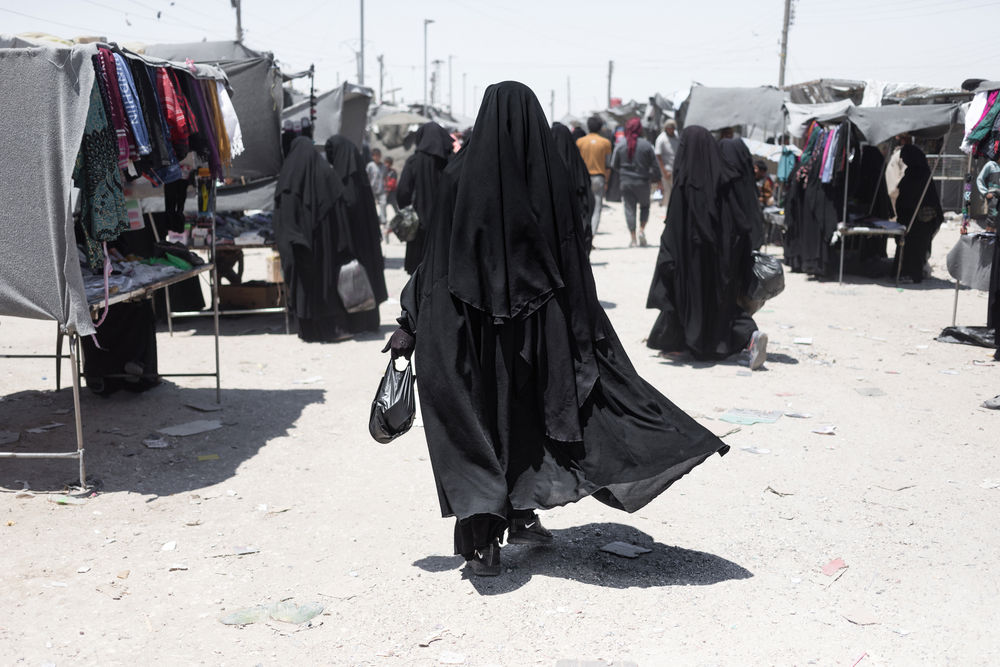Libyans desperate to flee violence risk the dangerous crossing to Europe......
On November 2, the Memorandum of Understanding (MoU) on migration between the Italian and Libyan governments will automatically renew for three years. The European Union (EU)-sponsored agreement has seen millions of dollars of financial and technical support given to the Libya Coast Guard, who have intercepted more than 100,000 people at sea since it was first signed in 2017, forcibly returning them to Libyan detention centers and trapping them in a cycle of abuse. Doctors Without Borders/Médecins Sans Frontières (MSF) teams operating in Libya and the Mediterranean Sea have witnessed first-hand the cycle of harm this agreement has funded and repeatedly stated that Libya is not a safe place for migrants to be returned to.
In the middle of night, a small wooden boat emerged from the darkness in international waters off the coast of Libya. The 40 people on board had been sailing for many hours after fleeing Libya in search of safety in Europe. Lunja, the youngest on board, just seven months old, was one of the first to be rescued from the boat and safely transported to the Geo Barents, a search and rescue ship operated by the international humanitarian medical organization Médecins Sans Frontières (MSF).
Lunja’s father, Tarek*, puts a life-jacket on her five-year-old brother, Ghani. “The only reason I put my family through this is to provide for their future,” said Tarek, 35, who is from an Imazighen village near the coast in Libya and fled the country with his wife and two children. “Libya is a dangerous place where militias control everything. I don't have control over my life: militias do. Every week, someone is killed for no reason. I'm terrified that something bad will happen to my son when we go for a walk. I would just walk around holding his hand to feel a bit safer."
For Tarek the collapse of his country, along with the destruction of his dreams and hope for the future, paved the way to his decision to escape from Libya. Other Libyans like Tarek and his family are attempting the dangerous crossing from Libya to Europe. Between June 2021 and October 2022, they rescued 121 Libyan citizens from boats in distress in the central Mediterranean Sea.
After the Gaddafi’s regime fell in 2011, civil war broke out, and Libya essentially became a battlefield for armed groups competing for power. A June 2022 report by the United Nations Independent Fact-Finding Mission on Libya described systematic violations on human rights including against migrants, refugees, and asylum seekers. It documented direct and indiscriminate attacks on civilians, murder, torture, imprisonment, rape, forced disappearance, and inhumane acts committed in detention centers.
"The country has become too dangerous for children to grow up in,” said Tarek. “Whenever I go out, I never know if I'll come back. We have waited so long for a government to be established and for law and order to be reinstated, but I have given up on this happening. The 2011 revolution gave us hope that we could change our future. Instead, we have no schools, hospitals, and basic services.”
Tarek worked as a police officer from 2013 until 2018, when he was forced to resign after the militia took control of the region and threatened to kill him because of his profession. “In Libya, you have two options: join a militia or die,” he said. “When we left Libya by boat, we helped a friend flee with us. She is a widow and the mother of three children. Her husband was a friend of mine—he [also] worked in the police force. He was shot in the back by a militia member after attempting to stop the militias illegal activities.”
“Although the European Union claims to be funding the Libyan government, money actually goes to the militias,” said Tarek. “Militias in charge of the detention centers also oversee the human trafficking. Ask any of the migrants who have been captured at sea and brought to detention centers, and they will all tell that they were sold by traffickers to those in control of detention centers. They work together to exploit migrants, who are sold and enslaved. Everybody knows it in Libya.”
Several international reports, as well as thousands of accounts from people who managed to flee detention centers, corroborate this description of the horrific treatment of migrants and refugees in Libya. “The human rights situation in Libya remains concerning,” said Abdoulaye Bathily, Special Representative for Libya and Head of the UN Support Mission in Libya at a UN Security Council meeting in October 2022. “Violations against migrants and asylum seekers continue with impunity. Arbitrary detention continues as a common practice […] approximately 3,243 migrants [are] arbitrarily detained in detention centres operated by Government entities."
Documented insecurity, military confrontations, deliberate attacks on civilians, systematic and widely documented torture, abuse and exploitation against migrants should be enough to prove to the EU and the Italian Governments that Libya cannot be considered a safe place. Thousands of migrants and asylum seekers are the sacrifice for European migration deterrence policies; their lives are expendable in the name of borders protection.
*all names have been changed for privacy/security reasons
Background notes
In February 2017, the Italian Government signed an EU sponsored agreement with the Libyan government, the Memorandum of Understanding (MoU) on Migration. Under this agreement, for the last five years, Italy and the EU have been helping the Libyan Coast Guard to enhance their maritime surveillance capacity, providing financial support and technical assets, at the expense of migrants’ and refugees’ human rights. The implementation of the MoU between Italy and Libya has nourished a heinous system of exploitation, extortion, and abuse in which migrants are trapped.
MSF has worked in detention centres in Libya since 2016, providing people with basic healthcare and psychosocial support. MSF currently provides medical care through mobile clinics in three detention centers across the country. MSF teams identify vulnerable people and refer patients requiring specialist care to hospitals across Libya. MSF treats people upon disembarkation after they have been intercepted at sea by the Libyan Coast guard and returned to Libya. Our teams also treat people with Tuberculosis in the city of Tripoli.
MSF has operated search and rescue (SAR) activities in the central Mediterranean since 2015, working on eight different SAR vessels, independently and in partnership with other non-governmental organizations. Our teams have rescued more than 85,000 people, including children. Since launching SAR operations on the Geo Barents in May 2021, MSF has rescued more than 5,000 people and recovered the bodies of 11 who died at sea.



